
“We are fallible, with memories that recast events for better or worse—either in the light of what we wish had happened, or to fit with our belief system, or because what we fear looms large in our imagination. And we all have an agenda—which I don’t mean in a sinister sense, but we all have a particular way of looking at the world and we present narratives that reflect that.”
Ware’s agenda is simply this: To write stories, regardless of who reads them.
“I truly think it’s innate. I was telling stories long before I could read or write…that initial urge came from somewhere deep inside me,” she said. “Even if civilization collapsed entirely and the publishing industry with it, I think I would still be the person sitting around the campfire trying to make sense of our new reality by creating fiction out of it.”
Fittingly, Ware, who studied English at the University of Manchester, wrote devotedly while working a series of day jobs—including positions within the book trade—and raising her two young children. She didn’t seek publication until her thirties, when she realized she no longer had the time to continue treating writing as a hobby.
“Writing is rather different from publication—and it took a change in circumstances to make me knuckle down to the business of trying to get published,” she said. “Before that I did want to be an author, but only in the same way as I quite fancy being a concert pianist—not to the extent of really trying to do very much about it.”
This story is from the {{IssueName}} edition of {{MagazineName}}.
Start your 7-day Magzter GOLD free trial to access thousands of curated premium stories, and 9,000+ magazines and newspapers.
Already a subscriber ? Sign In
This story is from the {{IssueName}} edition of {{MagazineName}}.
Start your 7-day Magzter GOLD free trial to access thousands of curated premium stories, and 9,000+ magazines and newspapers.
Already a subscriber? Sign In
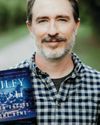
6 New Writers to Watch
Wiley Cash’s debut, A Land More Kind Than Home, about the bond between two brothers landed on the New York Times Best Sellers List and received the Crime Writers’ Association Debut of the Year.
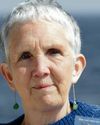
ANN CLEEVES
British author Ann Cleeves has an affinity for remote areas and how these isolated regions affect her characters.

CARLENE O'CONNOR
“Anyone can play Snow White. It takes real talent to play the Wicked Witch.”
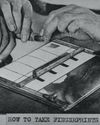
Mystery Scene MISCELLANY
FIRST USE OF FINGERPRINTS

PANIC ATTACK
The newest entry in my Pittsburgh set series of thrillers is called Panic Attack. It’s the sixth book featuring Daniel Rinaldi, a psychologist and trauma expert who consults with the Pittsburgh Police.

LAIDLAW'S LEGACY
During the pandemic, Ian Rankin stepped away from Rebus and into the shoes of friend and literary hero, the “Godfather of Tartan Noir” William McIlvanney.

HILARY DAVIDSON
Call it The Case of Life Imitating Art.
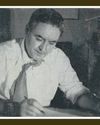
Thomas Walsh - The Unusual Suspect
Any paternity test on the sub-genre of police procedural will identify the DNA of Ed McBain and Lawrence Treat, as well as the 1948 movie The Naked City and the radio and TV series Dragnet…and of course Thomas Walsh.
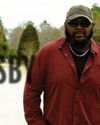
S.A. COSBY
In Razorblade Tears, two aging men—one Black, one white, both with criminal pasts—join forces to seek revenge for the murders of their gay sons. The themes of fathers and sons and toxic masculinity will be familar to fans of Cosby’s 2020 breakout Blacktop Wasteland.
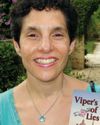
VIPER'S NEST OF LIES
A slip of the tongue is a dangerous thing. Not only does it expose indiscretions, it also can lead to murder. The latter especially applies to me.